It will be necessary, for several reasons, to give this short sketch the form rather of a critical essay than of a biography. The data for a life of Nathaniel Hawthorne are the reverse of copious, and even if they were abundant they would serve but in a limited measure the purpose of the biographer. Hawthorne's career was probably as tranquil and uneventful a one as ever fell to the lot of a man of letters; it was almost strikingly deficient in incident, in what may be called the dramatic quality. Few men of equal genius and of equal eminence can have led on the whole a simpler life. His six volumes of Note-Books illustrate this simplicity; they are a sort of monument to an unagitated fortune. Hawthorne's career had few vicissitudes or variations; it was passed for the most part in a small and homogeneous society, in a provincial, rural community; it had few perceptible points of contact with what is called the world, with public events, with the manners of his time, even with the life of his neighbours. Its literary incidents are not numerous. He produced, in quantity, but little. His works consist of four novels and the fragment of another, five volumes of short tales, a collection of sketches, and a couple of story-books for children. And yet some account of the man and the writer is well worth giving. Whatever may have been Hawthorne's private lot, he has the importance of being the most beautiful and most eminent representative of a literature. The importance of the literature may be questioned, but at any rate, in the field of letters, Hawthorne is the most valuable example of the American genius. That genius has not, as a whole, been literary; but Hawthorne was on his limited scale a master of expression. He is the writer to whom his countrymen most confidently point when they wish to make a claim to have enriched the mother-tongue, and, judging from present appearances, he will long occupy this honourable position. If there is something very fortunate for him in the way that he borrows an added relief from the absence of competitors in his own line and from the general flatness of the literary field that surrounds him, there is also, to a spectator, something almost touching in his situation. He was so modest and delicate a genius that we may fancy him appealing from the lonely honour of a representative attitude—perceiving a painful incongruity between his imponderable literary baggage and the large conditions of American life. Hawthorne on the one side is so subtle and slender and unpretending, and the American world on the other is so vast and various and substantial, that it might seem to the author of The Scarlet Letter and the Mosses from an Old Manse, that we render him a poor service in contrasting his proportions with those of a great civilization. But our author must accept the awkward as well as the graceful side of his fame; for he has the advantage of pointing a valuable moral. This moral is that the flower of art blooms only where the soil is deep, that it takes a great deal of history to produce a little literature, that it needs a complex social machinery to set a writer in motion. American civilization has hitherto had other things to do than to produce flowers, and before giving birth to writers it has wisely occupied itself with providing something for them to write about. Three or four beautiful talents of trans-Atlantic growth are the sum of what the world usually recognises, and in this modest nosegay the genius of Hawthorne is admitted to have the rarest and sweetest fragrance.

Spuk in Bly Manor - Schraubendrehungen
Henry James
audiobook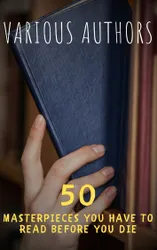
50 Masterpieces You Must Read Before You Die: Volume 2 : Timeless Classics That Will Enrich Your Mind and Soul
Louisa May Alcott, Jane Austen, Joseph Conrad, D. H. Lawrence, George Eliot, Leo Tolstoy, James Joyce, Charles Dickens, Bram Stoker, Oscar Wilde, Honoré de Balzac, Edgar Rice Burroughs, Anne Brontë, Charlotte Brontë, Emily Brontë, Lewis Carroll, Willa Cather, Miguel de Cervantes, E. E. Cummings, Fyodor Dostoyevsky, Daniel Defoe, Arthur Conan Doyle, Alexandre Dumas, Gustave Flaubert, Henry James, Victor Hugo, The griffin classics
book
180 Masterpieces of World Literature (Vol.2) : Life is a Dream, The Awakening, Babbitt, Sense and Sensibility, Dubliners, Notre Dame, Odyssey…
Virginia Woolf, P. B. Shelley, Henrik Ibsen, Charles Dickens, James Joyce, Leo Tolstoy, Ford Madox Ford, E. M. Forster, Honoré de Balzac, Jane Austen, L. M. Montgomery, Kenneth Grahame, Rabindranath Tagore, George Weedon Grossmith, F. Scott Fitzgerald, Daniel Defoe, Jules Verne, Jonathan Swift, James Fenimore Cooper, George MacDonald, J. M. Barrie, Alexandre Dumas, Homer, Benito Pérez Galdós, Dante, William Dean Howells, Kakuzo Okakura, Gustave Flaubert, Victor Hugo, Stendhal, John Buchan, Edgar Wallace, William Walker Atkinson, Émile Coué, G. K. Chesterton, D.H. Lawrence, George Bernard Shaw, Joseph Conrad, Walter Scott, Anthony Trollope, Emile Zola, Theodor Storm, Harriet Beecher Stowe, Nathaniel Hawthorne, Henry Fielding, Jerome K. Jerome, Laurence Sterne, Thomas Hardy, Willa Cather, Edith Wharton, Kate Chopin, Sinclair Lewis, W. Somerset Maugham, Henry James, Ivan Turgenev, Nikolai Gogol, Pedro Calderon de la Barca, Johann Wolfgang von Goethe, Benjamin Franklin, Bankim Chandra Chatterjee, Edgar Allan Poe, Willkie Collins, Ann Ward Radcliffe, Bram Stoker, Gaston Leroux, H. G. Wells, Lewis Wallace, Washington Irving, Machiavelli, Fyodor Dostoyevsky, Confucius, Laozi, John Milton, W. B. Yeats, Elizabeth von Arnim, Cao Xueqin
book
90 Masterpieces You Must Read (Vol.1) : Novels, Poetry, Plays, Short Stories, Essays, Psychology & Philosophy: The Madman, Moby-Dick, Siddhartha, Crime and Punishment, Hamlet, Great Expectations, Little Women, Meditations, The Einstein Theory, Heart of Darkness, The Red Badge of Courage
Walt Whitman, Herman Hesse, George Eliot, Kahlil Gibran, Anton Chekhov, Herman Melville, Oscar Wilde, Fyodor Dostoevsky, Nikolai Gogol, James Joyce, Henry David Thoreau, William Shakespeare, T. S. Eliot, John Keats, Charles Baudelaire, Walter Scott, Daniel Defoe, Louisa May Alcott, Jane Austen, Charlotte Brontë, Emily Brontë, Anne Brontë, Leo Tolstoy, Benito Pérez Galdós, William Makepeace Thackeray, Pierre Choderlos de Laclos, R.D. Blackmore, Alexandre Dumas, Marcel Proust, D. H. Lawrence, Charles Dickens, Thomas Hardy, Henry James, Guy de Maupassant, Princess Der Ling, Victor Hugo, Juan Valera, Anthony Trollope, Stephen Crane, E. M. Forster, Theodore Dreiser, Margaret Cavendish, Upton Sinclair, Plato, Apuleius, Marcus Aurelius, Sun Tzu, Voltaire, Miguel de Cervantes, Giovanni Boccaccio, Frederick Douglass, Sigmund Freud, H. A. Lorentz, Wallace D. Wattles, James Allen, Agatha Christie, Arthur Conan Doyle, Joseph Conrad, H. P. Lovecraft, Washington Irving, Mary Shelley, H. G. Wells, Edgar Allan Poe, Ernest Hemingway, L. Frank Baum, Robert Louis Stevenson, Mark Twain, Selma Lagerlöf, Jack London, Jules Verne, Lewis Carroll, Frances Hodgson Burnett, Rudyard Kipling, George Bernard Shaw, Soseki Natsume, Johann Wolfgang Goethe, Edgar Rice Burroughs, Brothers Grimm, Hans Christian Andersen
book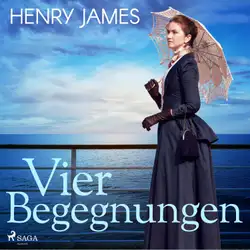
Vier Begegnungen
Henry James
audiobook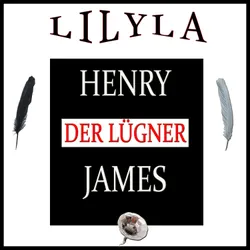
Der Lügner
Henry James
audiobook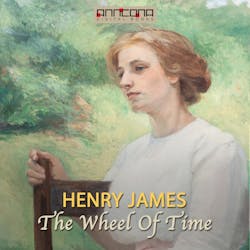
The Wheel Of Time
Henry James
audiobookbook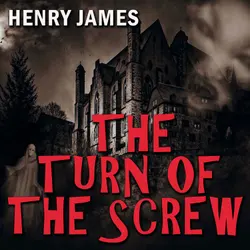
The Turn of the Screw
Henry James
audiobookbook
Benjamin Britten: Source Stories of Twelve Operas
Noye's Fludde, Guy de Maupassant, William Blake, Shakespeare, Henry James, Thomas Mann
audiobook
Otra vuelta de tuerca
Henry James
book
The Greatest Writers of All Time: Series 2 : Homer, George Eliot, Lewis Carroll, Thomas Hardy, Jack London, Henry James, D. H. Lawrence, Mary Shelley, Louisa May Alcott, Arthur Conan Doyle
Henry James, Louisa May Alcott, Lewis Carroll, George Eliot, Jack London, Arthur Conan Doyle, Homer, Thomas Hardy, Mary Shelley, D. H. Lawrence
book
The Giants of Literature: Series 2 : Complete Novels by George Eliot, Thomas Hardy, Louisa May Alcott, Henry James, Mary Shelley, Jack London, Lewis Carroll, D. H. Lawrence,
Homer, Henry James, George Eliot, D. H. Lawrence, Mary Shelley, Lewis Carroll, Thomas Hardy, Louisa May Alcott, Jack London, Arthur Conan Doyle
book
